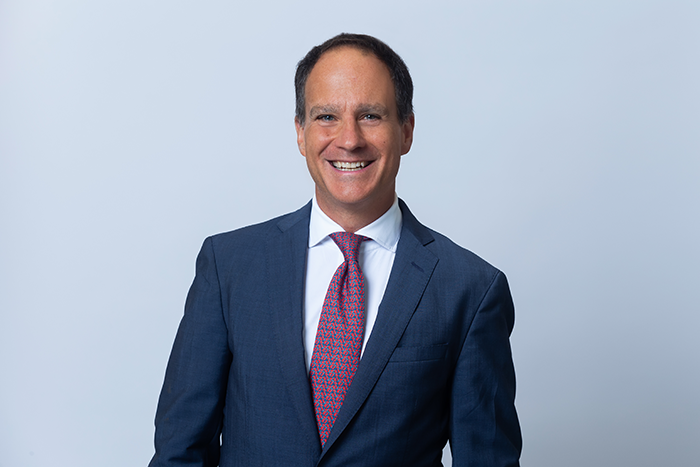Please see the excerpt from Rabbi Jonah Dov Pesner, Director of the Religious Action Center and Senior Vice President, Union for Reform Judaism, in The Social Justice Torah Commentary!
New from CCAR Press, The Social Justice Torah Commentary demonstrates that the Torah is a guide to addressing the most urgent challenges of our time. Contributors delve deeply into each Torah portion, drawing lessons to inspire tikkun olam (repairing the world).
Buy the book today.
Watch the Launch Event on Facebook.
The Torah is a call to action.
The prophet Micah famously said, "It has been told to you, O human, what is good, and what the Eternal requires of you: only to do justice, love mercy, and walk humbly with your God" (Micah 6:8).
The Jewish people collectively understand what "has been told" to us as the covenantal moment at Sinai when God called and we responded. The Torah-the record of that encounter, the telling of our story, and the obligations of our people-is a blueprint for the doing of justice, the loving of mercy, and thus walking humbly with God.
This seminal new commentary to the Torah joins centuries of interpretation, from the prophets to the rabbis, who, like Micah before us, understood the essence of the Torah as a call to action.
So many biblical passages exemplify the justice imperative central to Torah. Countless are contained in this volume, so I will simply mention my favorite. The Torah repeats a version of the injunction to love the stranger because we were slaves in Egypt in thirty-six different ways. For the Torah, love is realized not as a feeling, but in deeds. Over and over, the Torah calls us to take concrete action to protect the most vulnerable-the widow, the stranger, the orphan, and the poor.
Indeed, it seems redundant to call this volume The Social Justice Torah Commentary, since the Torah is inherently a call to action for a just and fair society. As the early Reform rabbis stated, and Rabbi Block rightly quotes in his introduction, "In full accordance with the spirit of Mosaic legislation, [namely Torah,] which strives to regulate the relations between rich and poor, we deem it our duty to participate in the great task of modern times, to solve, on the basis of justice and righteousness, the problems presented by the contrasts and evils of the present organization of society."1 This Torah commentary represents the contemporary generation of Reform Rabbis who are following in the tradition of our founders. They understood that Torah is in and of itself a charge to all who study the text, to all who take the covenant seriously, to help "solve . . . the evils of the present organization of society."
How radical and simple at the same time. As the diverse and creative commentators represented in this volume prove, the challenges of the present day are no less urgent than those that confronted earlier generations who read the Torah text as a demand to "do justice" in response.
What have we witnessed during the time that the authors and editors have collaborated on this commentary?
- Violent, murderous acts of hate that have targeted Jews, Muslims, and people of color (most often Black people)
- A racial reckoning exposing the radical inequalities in policing, criminal justice, health care, income, and more, grown out of hundreds of years of systemic racism in the United States and abroad
- An assault on democracy, voting rights, and democratic norms
- A pandemic that has not only taken the lives of millions and affected many more, but that has also disproportionately devastated low-income families, low-wage workers, Native Americans, and communities of color
- Mass shootings and gun violence disproportionately plaguing low-income Americans and Black and Brown people in the United States
- Catastrophic wildfires, weather "events," and ecological devastation, as humans continue to warm and poison the planet through emissions and pollutants
- Massive global dislocation of tens of millions of souls fleeing poverty, political violence, and climate change, who have become a mass of migrants, refugees, and today's "strangers"
- Continued assaults on truth, facts, and science, as social media and other outlets are employed to spread disinformation and fuel demagogues and autocrats
- Dangerously widening income and wealth gaps that cause enormous suffering and threaten democracy
- A failure to bring Israelis and Palestinians back to true negotiations, allowing the continued occupation to become a cancerous source of profound suffering
And, I write this afterword days after a mob of antisemitic, racist white supremacists took over the United States Capitol for four hours-sedition, enabled by the president of the United States and other elected officials. It seems the world is literally on fire.
During a convening of Reform rabbis committed to social justice, we studied a classic midrash that helped me make sense of times like these, clarifying our role as Jews. According to the Rabbinic legend, Abraham was journeying and came across a palace on fire. He asked, "Is it possible that this palace has no master?" Whereupon God comes out of the palace and says, "I am the owner."2
The midrash teaches that Abraham-who famously argues with God to demand protection for the innocent and justice for the people of Sodom and Gomorrah-discovers God in the burning palace, a metaphor for the world itself. Abraham's call to follow the one God comes in the context of the universe on fire and his commitment to respond. The Rabbis then say that God called Abraham the one who "loves justice and hates evil."3
The world is on fire, and like Abraham before us, we are called to protect the innocent and demand justice.
We can. And we must.
Reform rabbis and cantors, professionals and lay leaders, have proved time and again for more than a century that when we organize our congregations and communities, as we reach across lines of difference and build collective power with others who care about equity and justice for all, we can overcome. Like Shiphrah and Puah, the ancient Hebrew midwives who refuse to carry out Pharaoh's edict of genocide, we have proved that resistance to injustice is always possible.
When the United States government began to tear migrant families apart and place children in cages, violating the core Jewish principle of "loving the stranger," Reform Jews mobilized, protested, and helped create enough public pressure to shut down at least one detention facility, if not more.
When George Floyd was brutally murdered by law enforcement, as he cried out for his mother and begged to breathe, Reform Jews decried the injustice that disproportionately claims the lives of Black people at the hands of law enforcement, stating clearly and unequivocally that Black Lives Matter. They joined in protests across the United States, demanding criminal justice reform on a local and state level. Amid the racial reckoning, Reform Jews have increasingly centered Jews of Color and begun the hard work of addressing racism within the Jewish community itself.
When the Trump White House rolled back protections for trans students in schools, Reform Jews mobilized and demanded accountability and commitments from local school boards to protect their students.
When elected officials tried to remain in power through voter suppression, Reform Jews mobilized in a nonpartisan effort to ensure all eligible voters had access to the ballot. During the 2020 United States election, fifteen thousand Reform Jewish leaders engaged more than 875,000 voters, many in communities targeted for voter suppression, to ensure they knew their rights and that they voted. And when Georgia's Senate races went to a run-off, sixteen hundred Reform Jewish activists continued their efforts and reached 125,000 voters, who in turn elected the state's first-ever Jewish senator and first-ever Black senator.
From gun violence to reproductive rights and the campaign to address the climate crisis, Reform Jews joined with allies to demand action from local, state, and national policymakers. And where we lacked the power to influence elected officials, our leaders mobilized to offer direct support to the vulnerable people most impacted by systems of inequality and bigoted policies.
It is worthy to note that many of the contributors to this very Torah commentary were the same leaders who organized our community to rise up and act. They spoke truth to power; they engaged their communities in the work; they reached across lines of difference and created deep, enduring relationships and coalitions. Through it all, they grounded the work in enduring Jewish values. They taught biblical and rabbinic texts addressing the issues of our time and offered Jewish prayer and song to both nurture our people and agitate them to act.
What have we learned?
First, leadership matters. Our rabbis, cantors, and lay leaders can effectively speak truth to power. They can interpret our tradition in ways that help the Jewish people and the wider community understand the persistent Jewish concern for justice and constant call to protect the most vulnerable. Too often, our leaders are constrained by the limiting realities of fundraising, job security, and more. But when they are able to articulate the core values of our texts and meet the people where they live, they can lead them with courage and faith into struggles for the common good.
Second, relationships matter. Clergy who have cared for their congregants can take risks and raise their prophetic voices. Synagogues that have stood with other communities in their neighborhoods and beyond-from Black churches to Muslim mosques-find their protection when Jews are threatened. We have found safety in our solidarity. And most important, we have built broad, trusting coalitions, centering the voices of those most often marginalized in society. Through those reciprocal relationships of listening, trust, and solidarity, we have built political power to hold elected officials accountable, make systemic changes in public policy, and enhance democracy. And even as we advocate for systems and policies, we cannot neglect direct support for the most vulnerable.
One last point, perhaps the most important of all: Torah matters. The Rabbis taught that of all the mitzvot -- all our sacred obligations -- the most important is serious Jewish learning. They said, "The study of Torah is equal to them all, because it leads to them all."4 So study. "Turn it and turn it."5 Let every action for justice we take be rooted first and foremost in our understanding of the Torah, as refracted through millennia of interpretation, commentary, and application. This volume reflects the very best of our generation's attempt to apply enduring Jewish values to the most vexing problems confronting contemporary life. What makes us unique, what makes us compelling and powerful, is not just our ability to organize and mobilize our people to make change, though we celebrate that power. Our authenticity is grounded in the voices of those who came before us and our students who will come after us, calling upon us to fulfill our obligations as Jews, to live the covenant we made at Sinai, and to apply the Torah's teachings in our lives. Torah is the ultimate call to action for justice and mercy, those deeds in the world whose rewards are beyond measure-"For the study of Torah leads to them all."
Notes
1. "Declaration of Principles," more commonly known as the "Pittsburgh
Platform," Central Conference of American Rabbis, 1885.
2. B'reishit Rabbah 39:1.
3. B'reishit Rabbah 39:7.
4. Babylonian Talmud, Shabbat 127a.
5. Pirkei Avot 5:22.
Related Posts

Awakening to the Moral Imperatives of this Moment



